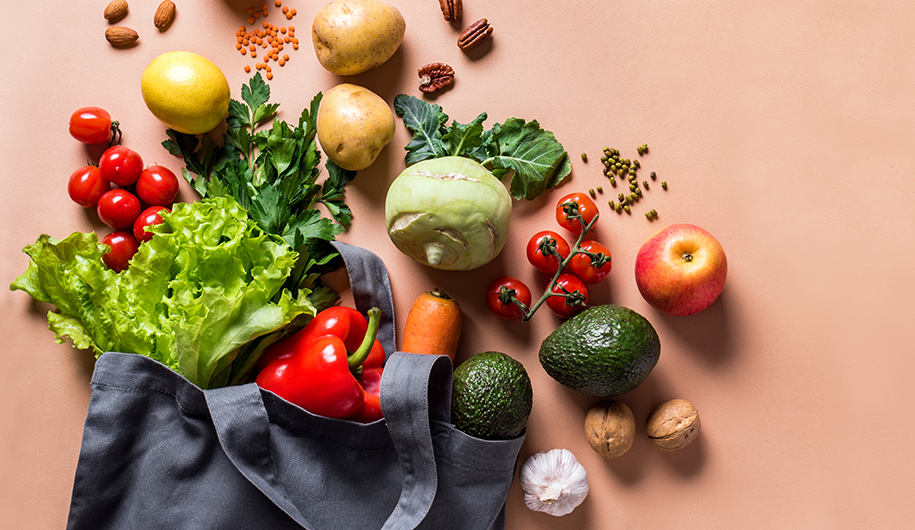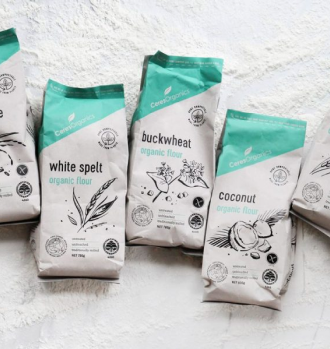
You would've come across many articles and opinions on organic vs conventional methods. Organic isn't just about the food, but also the overall impact it has on the environment. Our concern is for the state of the world as a whole. We support organic and biodynamic farmers around the world as part of our commitment to sustainability of the earth. Organics is based on the use of local and renewable resources, growing things where they naturally grow best.
See our 6 points about why you should be choosing organic.
1. Healthy Products
Organic products are better because of the way they are grown and processed. Conventional agriculture uses fungicides, herbicides and synthetic pesticides, residues of which remain after washing and cooking. It also allows the use of GMOs, often engineered to make food crops resistant to herbicides and/or to produce an insecticide, the long-term health and environmental consequences of which have not been thoroughly tested. Conversely, organic agriculture only permits the use pesticides derived from natural ingredients, like citronella and clove oil, and is allowed to grow at its own pace, rather than having that growth sped up by synthetic fertilizers. GMO products and GE processes are prohibited in all aspects of certified organic production systems and products. Organics also ensures a cleaner ingredients list, because questionable artificial additives aren’t allowed.
2. Healthy People
Eating organic, and using products made from organic ingredients, helps us avoid unwanted chemicals, making it safer and ultimately better for our bodies. There is also research that shows eating organic food helps protect us against disease, and actually offers more nutritional value, because organic crops are grown in healthy, biologically active soils. And, as anyone who eats organic will tell you, organic food tastes better.
3. Healthy planet
Organics is based on the use of local and renewable resources, growing things where they naturally grow best. Organic agriculture helps protect the health of our soil and ecosystem by working in harmony with nature, and focusing on soil fertility as the foundation of a healthy crop. This is in stark contrast to conventional agriculture, which focuses on boosting plant growth, with the use of chemicals that degrade the quality of our soil, our waterways, and the air we breathe. These are practices that chase short term earnings, while the true cost is deferred to our planet and future generations.
One of the largest environmental disasters is the loss of quality soil. With continued exposure to pesticides and fertilisers, the quality of soil degrades to a point it can no longer be used. Soil has its own microbiome, and persistent use of pesticides is like long-term use of antibiotics, not only destroying bad bacteria, but also the good. Eventually there’s no bacteria left to allow the soil to care for itself, becoming dependent on chemicals to keep it functioning, which eventually won’t be effective. Organic farming practices reduce pollution, conserve water, reduce soil erosion, increase soil fertility, and use less energy.
4. Healthy future
While many of us feel helpless in the effects of climate change, one opportunity we all have to help mitigate its impact is to support organic. Chemical agriculture is the second biggest contributor to climate change, primarily through the release of carbon dioxide from the soil into the atmosphere. Organic and other forms of agriculture, now commonly called regenerative agriculture, can reverse this and sequester carbon back into the soil. This is because carbon is built up in the soil through enriching it with composted plant matter. The more carbon is stored in the soil and kept there, the more it becomes a natural carbon sink. The soil is effectively “eating up” the carbon that would otherwise be released into the atmosphere, reversing the impact of climate change. If the world converted to organic farming this could go a long way towards helping solve the issue of carbon in our atmosphere.
5. Looking after our communities (looking after workers and animals)
Choosing organic helps support your fellow citizens, especially those that work the fields to provide the products you use every day. Organic farms are safer places to work because they are free of pesticides, herbicides and chemical fertilisers. Organics also inherently supports fairer working conditions and wages for growers.
It also maintains the highest levels of animal welfare, meaning happier and healthier animals. In order to be certified organic, livestock must be free range, which means no caged chickens and sow stalls, and cattle must be raised without synthetic growth hormones, limited vaccine and antibiotic use, as well as stress-free weaning. They have plenty of space, reducing stress and disease, and are fed a diet that is as natural as possible.
6. Biodiversity & protection of wildlife
Organic farming practices encourage biodiversity rather than mono-crops. Crop rotation and companion planting is used, so the plants help each other, and organic farmers tend to diversify with a variety of crops for the health of the farm. Most conventional food is hybridized to produce large, attractive specimens, rather than a variety of indigenous strains that are tolerant to regional conditions, such as droughts and pests. A more diverse farm is a more stable farm, playing a critical role in how resilient it is to issues like bad weather, disease, and pests.
Wildlife is crucial to a healthy planet. The decline of birds, bees and other pollinators have been linked to the synthetic pesticides used by conventional farmers. Organic farms create havens for wildlife including homes for the birds and the bees and has been proven to have more biodiversity.
Organics is a pretty great way to help save the world, we think so anyway, and we won’t rest until we’ve made organics part of everyday life for everyone.







